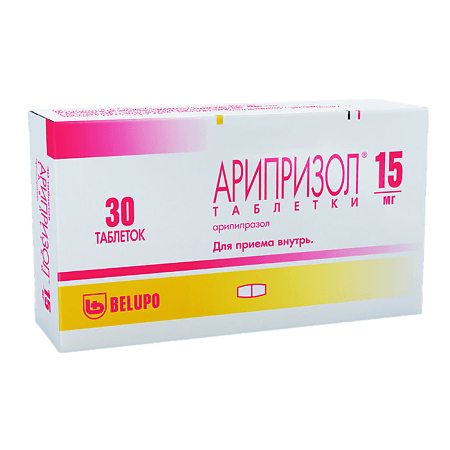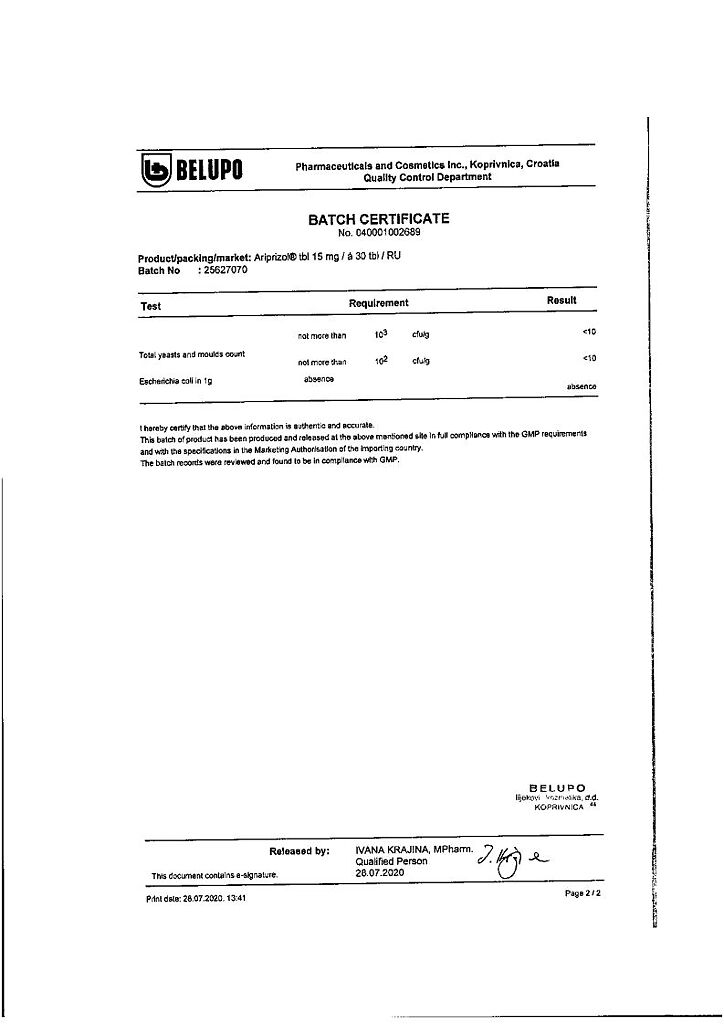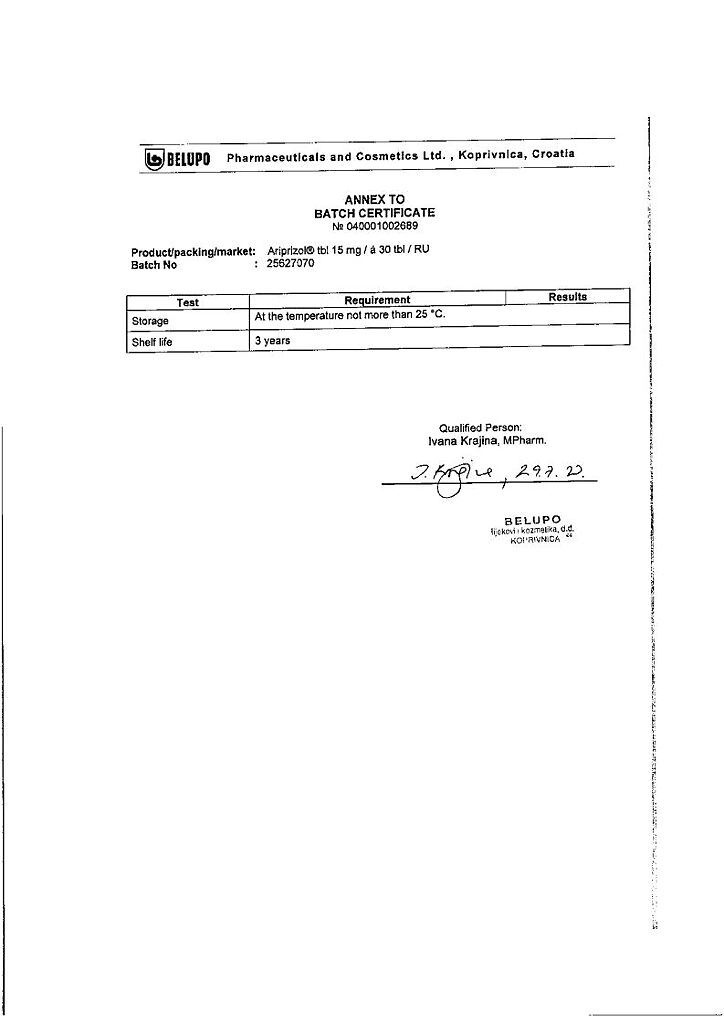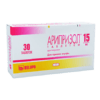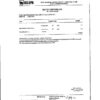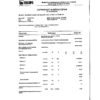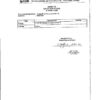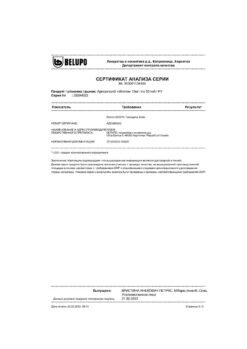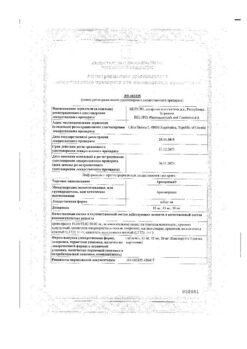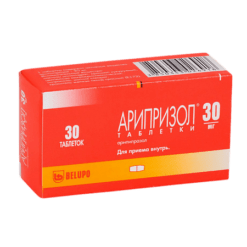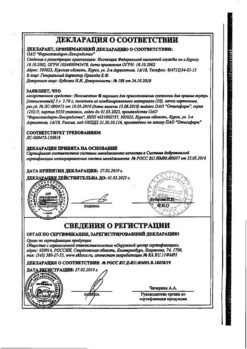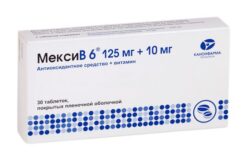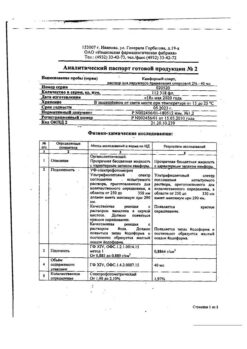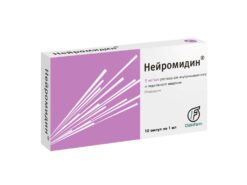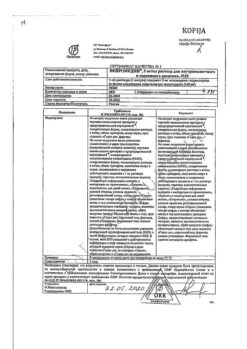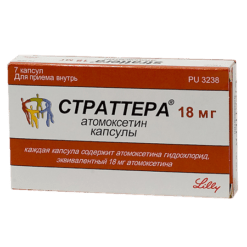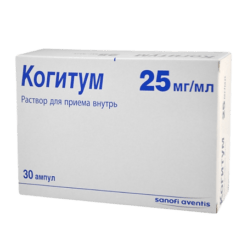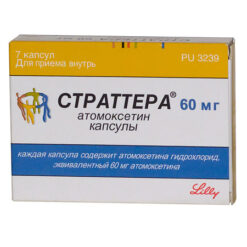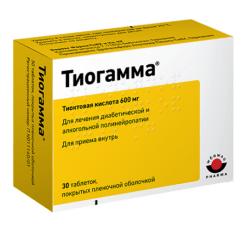No products in the cart.
Ariprizol, tablets 15 mg 30 pcs
€155.60 €129.67
Description
An antipsychotic (neuroleptic).
The therapeutic effects of aripiprazole in schizophrenia are thought to be due to a combination of partial agonist activity against dopamine D2– and serotonin 5-HT1a– receptors and antagonistic activity against serotonin 5-HT2– receptors.
Aripiprazole has high in vitro affinity for dopamine D2– and D3-receptors, serotonin 5-HT1a– and 5-HT2a-receptors and moderate affinity for dopamine D4-, serotonin 5-HT2c– and 5-HT7-, α1-adrenoreceptors and histamine H1-receptors.
Aripiprazole is also characterized by moderate affinity for serotonin reuptake sites and no affinity for muscarinic receptors.
Indications
Indications
Treatment of acute attacks of schizophrenia, maintenance therapy of schizophrenia.
Treatment of acute manic episodes of bipolar I disorder and for maintenance therapy in patients with bipolar I disorder who have recently experienced a manic or mixed episode.
Pharmacological effect
Pharmacological effect
Antipsychotic (neuroleptic).
It is assumed that the therapeutic effect of aripiprazole in schizophrenia is due to a combination of partial agonist activity at dopamine D2 and serotonin 5-HT1a receptors and antagonistic activity at serotonin 5-HT2 receptors.
Aripiprazole has high in vitro affinity for dopamine D2 and D3 receptors, serotonin 5-HT1a and 5-HT2a receptors and moderate affinity for dopamine D4, serotonin 5-HT2c and 5-HT7, α1-adrenergic receptors and histamine H1 receptors.
Aripiprazole is also characterized by moderate affinity for serotonin reuptake sites and lack of affinity for muscarinic receptors.
Special instructions
Special instructions
Use with caution in patients with cardiovascular diseases (coronary artery disease, including previous myocardial infarction, chronic heart failure, conduction disorders), conditions predisposing to arterial hypotension (dehydration, hypovolemia and taking antihypertensive drugs) due to the possibility of developing orthostatic hypotension; in patients with cerebrovascular diseases, with convulsive seizures or suffering from diseases in which seizures are possible; in patients with an increased risk of hyperthermia (for example, during intense physical activity, overheating, taking anticholinergic drugs, dehydration due to the ability of antipsychotics to impair thermoregulation); in patients with an increased risk of aspiration pneumonia due to the risk of impaired motor function of the esophagus and aspiration; in obese patients with a history of diabetes mellitus; taking drugs with m-anticholinergic activity.
A tendency to suicidal thoughts and attempts is characteristic of psychosis, therefore, careful medical supervision is necessary during drug therapy.
The risk of developing tardive dyskinesia increases as the duration of antipsychotic therapy increases, therefore, if symptoms of tardive dyskinesia appear while taking aripiprazole, the dose should be reduced or discontinued. After discontinuation of therapy, these symptoms may temporarily intensify or even appear for the first time.
When treated with antipsychotics, incl. aripiprazole may develop NMS, which is manifested by hyperpyrexia, muscle rigidity, mental disorders and instability of the autonomic nervous system (irregular pulse and blood pressure, tachycardia, sweating and cardiac arrhythmias). In addition, increased CPK activity, myoglobinuria (rhabdomyolysis) and acute renal failure sometimes occur. In case of symptoms of NMS or unexplained fever, all antipsychotics, incl. aripyrazole should be discontinued.
Hyperglycemia, sometimes severe and associated with ketoacidosis, which can lead to hyperosmolar coma and even death, has been reported in patients taking atypical antipsychotics. Although the relationship between the use of atypical antipsychotics and hyperglycemic disorders remains unclear, patients diagnosed with diabetes mellitus should have their blood glucose levels monitored regularly while taking atypical antipsychotics. Patients who have risk factors for diabetes mellitus (obesity, a family history of diabetes) when taking atypical antipsychotics should have their blood glucose levels determined at the beginning of the course and periodically while taking the drug. In any patient taking atypical antipsychotics, constant monitoring for symptoms of hyperglycemia, including increased thirst, frequent urination, polyphagia, and weakness is necessary.
Impact on the ability to drive vehicles and operate machinery
As with the prescription of other antipsychotics, when prescribing aripiprazole, the patient should be warned about the dangers of working with moving mechanisms and driving a car.
Active ingredient
Active ingredient
Aripiprazole
Composition
Composition
1 tab. contains:
Active substances:
Contraindications
Contraindications
Senile dementia, lactation period, childhood and adolescence up to 18 years, hypersensitivity to aripiprazole.
Side Effects
Side Effects
From the cardiovascular system: often – orthostatic hypotension, tachycardia; possible – bradycardia, palpitations, myocardial infarction, prolongation of the QT interval, cardiac arrest, hemorrhage, atrial fibrillation, heart failure, AV block, myocardial ischemia, deep vein thrombosis, phlebitis, extrasystole; rarely – vasovagal syndrome, cardiac enlargement, atrial flutter, thrombophlebitis, intracranial bleeding, cerebral ischemia; very rarely – fainting.
From the digestive system: very often – nausea, loss of appetite; often – dyspepsia, vomiting; constipation; possible – increased appetite, gastroenteritis, difficulty swallowing, flatulence, gastritis, dental caries, gingivitis, hemorrhoids, gastroesophageal reflux, gastrointestinal hemorrhages, periodontal abscess, swelling of the tongue, fecal incontinence, colitis, rectal hemorrhages, stomatitis, oral ulcerations, cholecystitis, fecaloma, candidiasis oral mucosa, cholelithiasis, belching, stomach ulcer; rarely – esophagitis, bleeding gums, inflammation of the tongue, bloody vomiting, intestinal bleeding, duodenal ulcer, cheilitis, hepatitis, liver enlargement, pancreatitis, intestinal perforation; very rarely – increased activity of ALT, AST, alkaline phosphatase.
Allergic reactions: very rarely – anaphylaxis, angioedema, itching and urticaria.
From the musculoskeletal system: often – myalgia, convulsions; possible – pain in joints and bones, myasthenia gravis, arthritis, arthrosis, muscle weakness, spasms, bursitis; very rarely – increased CPK activity, rhabdomyolysis, tendonitis, tenobursitis, rheumatoid arthritis, myopathy.
From the central nervous system and peripheral nervous system: very often – insomnia, drowsiness, akathisia; often – dizziness, tremor, extrapyramidal syndrome, psychomotor agitation, depression, nervousness, increased salivation, hostility, suicidal thoughts, manic thoughts, unsteady gait, confusion, resistance to performing passive movements (gear wheel syndrome); possible – dystonia, muscle twitching, decreased concentration, paresthesia, limb tremors, impotence, bradykinesia, decreased/increased libido, panic reactions, apathy, memory loss, stupor, amnesia, stroke, hyperactivity, depersonalization, dyskinesia, restless legs syndrome (akathisia), myoclonus, depressed mood, increased reflexes, slowing mental function, increased sensitivity to stimuli, hypotension, impaired oculomotor reaction; rarely – delirium, euphoria, buccoglossal syndrome, akinesia, depression of consciousness up to loss of consciousness, decreased reflexes, obsessive thoughts, NMS.
From the respiratory system: often – shortness of breath, pneumonia; possible – asthma, nosebleeds, hiccups, laryngitis; rarely – hemoptysis, aspiration pneumonia, increased sputum production, dry nasal mucosa, pulmonary edema, pulmonary embolism, hypoxia, respiratory failure, apnea.
Dermatological reactions: often – dry skin, itching, increased sweating, skin ulcerations; possible – acne, vesiculobulous (blistering) rash, eczema, alopecia, psoriasis, seborrhea; rarely – maculopapular rash, exfoliative dermatitis, urticaria.
From the senses: often – conjunctivitis, ear pain; possible – dry eyes, eye pain, ringing in the ears, inflammation of the middle ear, cataracts, loss of taste, blepharitis; rarely – increased lacrimation, frequent blinking, otitis externa, amblyopia, deafness, diplopia, ocular hemorrhages, photophobia.
From the urinary system: often – urinary incontinence; possible – cystitis, frequent urination, leukorrhea, urinary retention, hematuria, dysuria, amenorrhea, premature ejaculation, vaginal bleeding, vaginal candidiasis, renal failure, uterine bleeding, menorrhagia, albuminuria, kidney stones, nocturia, polyuria, urge to urinate; rarely – pain in the mammary gland, cervicitis, galactorrhea, anorgasmia, burning sensation in the genitourinary system, glycosuria, gynecomastia (enlarged mammary glands in men), urolithiasis, painful erection.
From the body as a whole: often – flu-like syndrome, peripheral edema, pain in the chest, neck; possible – pain in the pelvis, facial swelling, malaise, photosensitivity, jaw pain, chills, jaw stiffness, bloating, chest tension; rarely – sore throat, stiffness in the back, heaviness in the head, candidiasis, stiffness in the throat, Mendelssohn’s syndrome, heat stroke.
From the metabolic side: often – weight loss, increased CPK levels; possible – dehydration, edema, hypercholesterolemia, hyperglycemia, hypokalemia, diabetes mellitus, hyperlipidemia, hypoglycemia, thirst, increased urea levels in the blood, hyponatremia, iron deficiency anemia, increased creatinine, bilirubinemia, increased LDH levels, obesity; rarely – hyperkalemia, gout, hypernatremia, cyanosis, urine acidification, hypoglycemic reaction.
Interaction
Interaction
There are various ways of metabolism of aripiprazole, incl. with the participation of the enzymes CYP2D6 and CYP3A4. In studies in healthy subjects, potent inhibitors of CYP2D6 (quinidine) and CYP3A4 (ketoconazole) reduced the oral clearance of aripiprazole by 52% and 38%, respectively (the dose of aripiprazole should be reduced when coadministered with CYP3A4 and CYP2D6 inhibitors).
Taking aripiprazole 30 mg concomitantly with carbamazepine, a strong CYP3A4 inducer, was associated with a decrease in the Cmax and AUC of aripiprazole by 68% and 73%, respectively, and a decrease in the Cmax and AUC of its active metabolite dehydroaripiprazole by 69% and 71%, respectively. A similar effect can be expected with other potent inducers of CYP3A4 and CYP2D6.
Functional features
Functional features
After oral administration, aripiprazole is rapidly absorbed from the gastrointestinal tract. Cmax in plasma is achieved after 3-5 hours. Absolute bioavailability is 87%. Food intake does not affect the bioavailability of aripiprazole.
Css is reached after 14 days. The accumulation of the drug with repeated administration is predictable. The pharmacokinetics of aripiprazole at steady state are proportional to the dose. There were no daily fluctuations in the distribution of aripiprazole and its metabolite dehydroaripiprazole.
Aripiprazole is intensively distributed in tissues, Vd is 4.9 l/kg. At therapeutic concentrations, more than 99% of aripiprazole is bound to serum proteins, mainly albumin.
Dehydroaripiprazole, the major metabolite in human plasma, has been found to have the same affinity for dopamine D2 receptors as aripiprazole.
Aripiprazole undergoes only minimal first-pass metabolism. Aripiprazole is metabolized in the liver in three ways: dehydrogenation, hydroxylation and N-dealkylation. In vitro, dehydrogenation and hydroxylation of aripiprazole occurs under the influence of isoenzymes CYP3A4 and CYP2D6, N-dealkylation – CYP3A4.
At steady state, the AUC of dehydroaripiprazole is approximately 39% of the plasma AUC of aripiprazole.
The average T1/2 of aripiprazole is about 75 hours.
After a single dose of 14C-labeled aripiprazole, approximately 27% and 60% of the radioactivity is detected in urine and feces, respectively. Less than 1% of unchanged aripiprazole is determined in the urine and approximately 18% of the dose taken is excreted unchanged in the feces. The total clearance of aripiprazole is 0.7 ml/min/kg, mainly due to excretion by the liver.
Manufacturer
Manufacturer
Belupo, medicines and cosmetics d.d., Croatia
Additional information
| Manufacturer | Belupo,medicines and cosmetics d.d., Croatia |
|---|---|
| Medication form | pills |
| Brand | Belupo,medicines and cosmetics d.d. |
Other forms…
Related products
Buy Ariprizol, tablets 15 mg 30 pcs with delivery to USA, UK, Europe and over 120 other countries.

